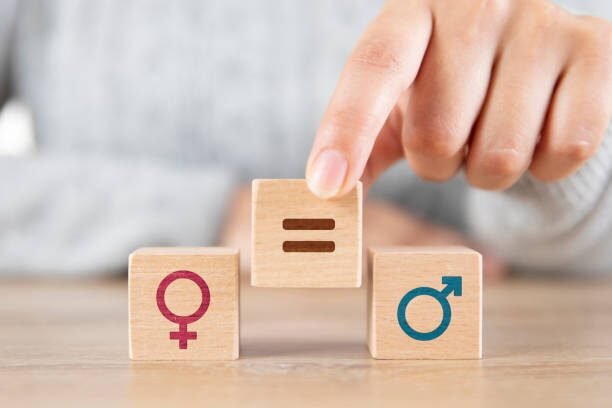
Feminism is one of the most powerful movements for social change. It has been around for centuries, fighting for women’s rights and equality. Yet, today, there are ongoing debates about whether feminism is still relevant. The backlash against modern feminism is loud and persistent, raising the question: Has feminism evolved too far, or not far enough? Let’s dive into the complex landscape of feminism and its relevance in the 21st century.
A Quick Look at Feminism’s Roots

Feminism has changed a lot over the years. To understand its relevance today, we need to take a look back. The first wave of feminism began in the 19th century. This wave was all about securing basic rights for women, like the right to vote. The second wave, in the 1960s and 70s, was more about social and legal equality. Issues like reproductive rights, workplace discrimination, and sexual freedom became central to this wave.
Now, we are in the third wave of feminism. This wave focuses on intersectionality—the idea that gender, race, class, and sexuality intersect and affect women’s experiences. Feminism today is broader, more inclusive, and more focused on individual rights. But is this new form of feminism still meaningful? Or has it lost its way?
Has Feminism Evolved Too Far?

Critics of modern feminism argue that the movement has gone too far. They believe that today’s feminism focuses too much on issues that do not resonate with the average woman. For example, some argue that feminism has become too academic or too concerned with identity politics. This has led to a perception that feminism is more for privileged, elite women than for working-class women or women of color.
The diversity of feminism today can also make it harder for people to understand what it really stands for. From liberal feminism to radical feminism, from eco-feminism to post-colonial feminism, the movement is split into many different factions. This fragmentation makes it difficult to agree on what feminism is or should be. What began as a unified call for gender equality has become a complex web of ideologies.
The Backlash Against Feminism

The backlash against modern feminism is perhaps the most talked-about aspect of today’s feminist discourse. But why do so many people reject feminism? One of the biggest reasons is the widespread belief that feminism is “anti-men.” Critics often accuse feminists of hating men or painting all men as the enemy. This, of course, is a misunderstanding of the movement’s core principles.
At its heart, feminism is not about rejecting men. It’s about challenging gender roles that harm both men and women. Feminism seeks equality. It aims to break down traditional norms that restrict everyone based on gender. However, the portrayal of feminism as “man-hating” is often amplified in the media. This creates a distorted image of what the movement is really about.
Another reason for the backlash is the belief that feminism is unnecessary in today’s world. In many countries, women have gained legal equality. Women can vote, work, and own property. Some people think these rights are enough. They believe that pushing for more equality, like affirmative action or quotas, creates reverse discrimination. Men, they argue, are now being left behind.
Read Also: How Future Technology May Impact Pregnancy and Childbirth
Is Feminism Still Relevant Today?

Despite the criticisms, feminism remains highly relevant today. In fact, the need for feminism is arguably greater than ever. Women still face significant challenges in many parts of the world. The gender pay gap continues to persist. According to the World Economic Forum, at the current rate of progress, it will take over 200 years to close the global gender pay gap. Women are still underrepresented in positions of power. Only 26% of the world’s parliamentary seats are held by women. Women still face workplace discrimination, including sexual harassment, unequal pay, and lack of career advancement opportunities.
Beyond the workplace, women’s reproductive rights are still under threat in many parts of the world. For instance, the overturning of Roe v. Wade in the United States in 2022 sparked a national debate over women’s right to choose. The rollback of abortion rights in several states shows how precarious women’s rights can be. These examples demonstrate that the fight for women’s rights is far from over.
Intersectionality: The Heart of Modern Feminism

A key feature of modern feminism is intersectionality. This concept, introduced by Kimberlé Crenshaw in the 1980s, focuses on how different aspects of identity—like race, class, and sexuality—intersect to shape a person’s experiences with oppression. For example, a Black woman may face racism and sexism in ways that are different from the experiences of white women. Similarly, a queer woman may struggle with both sexism and homophobia.
Read Also: Why Men’s Mental Health is Ignored: The Stigma Behind ‘Man Up’
This focus on intersectionality has made modern feminism more inclusive. It acknowledges that not all women experience oppression in the same way. Feminism today recognizes the diverse struggles of women across different races, cultures, and social classes. This is a big step forward compared to the early waves of feminism, which were often criticized for being predominantly white and middle-class.
However, some critics argue that modern feminism has become too focused on identity politics. They claim that this focus leaves out certain voices—particularly those of white, cisgender, heterosexual women. Critics also argue that the movement’s emphasis on identity has led to fragmentation, making it harder for feminism to unite under a single, clear message.
The Role of Men in Feminism

One common misconception about feminism is that it excludes men. In reality, feminism invites men to participate in the fight for gender equality. Feminism is not just about empowering women—it’s about challenging toxic masculinity and rigid gender norms that harm everyone.
Feminism calls for a world where men can express vulnerability without fear of judgment. It advocates for a society where men are not pressured to conform to narrow ideas of masculinity. Men, too, benefit from feminist principles, as they can break free from expectations that limit their emotional, professional, and social lives.
Yet, despite these inclusive aims, many men feel alienated by modern feminism. They see it as a threat to their identity and their power. This can lead to resistance and resentment. For feminism to move forward, it must find ways to engage men in the conversation without alienating them.
Read Also: Eugenics in Medicine: How Science Perpetuated Racism
Feminism in the Digital Age
The rise of social media has dramatically changed how feminism operates. Platforms like Twitter, Instagram, and TikTok have allowed feminists to organize, spread ideas, and mobilize for change. Social media has given a voice to individuals who were previously marginalized or silenced. It has also allowed people to share their stories of injustice, whether it’s sexual harassment, pay inequality, or political oppression.
However, the digital age has also brought about new challenges. The anonymity provided by the internet has led to increased trolling, harassment, and misinformation. Feminist activists, especially women of color, often face online abuse and threats. The digital space has also amplified the voices of antifeminists, making it harder to have constructive discussions about gender equality.
Despite these challenges, the internet remains a powerful tool for the feminist movement. It has made feminism more accessible and visible to a global audience. This digital revolution has transformed the way people engage with feminism, both for better and for worse.
The Future of Feminism
Looking ahead, what does the future hold for feminism? It’s clear that feminism is not going away. The fight for gender equality will continue for as long as women are oppressed. However, the way feminism evolves will depend on the conversations we have today.
Feminism in the future may focus more on global issues. For instance, addressing gender-based violence in conflict zones or advocating for women’s rights in authoritarian countries. Feminism may also need to focus more on the economic empowerment of women. The rise of automation and the gig economy threatens to leave many women behind, especially those in low-wage jobs.
Feminism may also need to rethink how it engages with men. Encouraging men to support gender equality is essential for creating lasting change. The feminist movement will need to find ways to unite people from all genders in this fight.
Read Also: Sleep Hygiene 101: Creating a Restful Environment for Better Rest
Conclusion
So, is feminism still relevant? Absolutely. The feminist movement has not only shaped history but continues to influence the present and future. Despite the backlash, feminism’s core principles of equality and justice remain essential. There is still much work to be done to ensure that women have equal opportunities, protection, and rights in every part of the world.
As feminism evolves, it must remain inclusive, adaptable, and focused on intersectionality. It must continue to address both the personal and structural barriers that women face. Feminism cannot afford to become stagnant, nor can it ignore the complexities of modern society. The fight for equality is ongoing, and it will take all of us—men and women alike—to make gender equality a reality.
FAQs
- What is modern feminism focused on?
Modern feminism focuses on issues like gender equality, reproductive rights, intersectionality, and fighting discrimination in all forms. It aims to empower women while breaking down harmful gender norms. - Does feminism exclude men?
No, feminism is not about excluding men. It encourages men to participate in the movement for gender equality, advocating for freedom from toxic masculinity and restrictive gender roles. - Why is there backlash against feminism?
The backlash is due to misunderstandings, particularly the misconception that feminism is anti-men. Some people also feel that feminism has gone too far in seeking equality, leading to resistance. - How can feminism be more inclusive?
Feminism can be more inclusive by focusing on intersectionality and recognizing the different challenges faced by women based on their race, class, sexuality, and other identities. - What are the main challenges that modern feminism faces?
Modern feminism faces challenges like fragmentation, backlash, online harassment, and the difficulty of engaging men in the movement. These challenges must be addressed for feminism to continue making progress.

